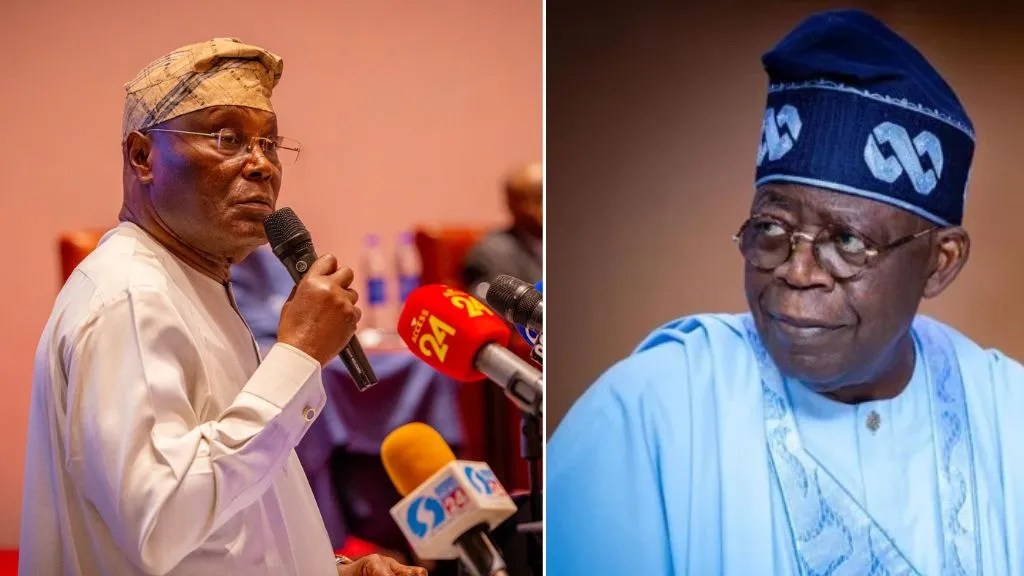
Former Vice President, Atiku Abubakar has reported the present Nigerian government led by Bola Tinubu – to the United Nations and the International Criminal Court over the killing of citizens during the nationwide #EndBadGovernance protests.
Last week, Amnesty International Nigeria said no fewer than 13 people had been killed by security operatives during the protests.
In Kano, for instance, it was learnt that the violence erupted in Rijiyar Lemo, Kurna to Bachirawa areas in Fagge Local Government, Kofar Nassarawa in Kano municipal and Unguwa Uku area of Tarauni Local Government of the state.
Commenting on these developments, Atiku “vehemently condemn the heinous act of using live ammunition on citizens peacefully protesting against bad governance, as witnessed today in Kano and Abuja”.
He described it as “utterly intolerable and reminiscent of the dark days of military dictatorship”.
He said, “I urge the international community, including the United Nations and the International Criminal Court, to closely monitor the situation in Nigeria and hold its leadership and security apparatus accountable.
“I reaffirm my counsel to protesters to steadfastly exercise their right to peaceful protest and reject any form of violence.
“Those engaging in looting and the destruction of public and private property must be isolated and prosecuted according to the law. By indulging in such acts, they undermine the legitimate protests and play into the hands of those who oppose their right to protest.
“President Tinubu must demonstrate true leadership by immediately addressing and implementing the demands of the Nigerian people.”
Millions of Nigerians took to the streets on Thursday, 1 August, to protest the prevailing hunger and abuse of power in the country.
Demonstrations continued on Friday, Saturday and Sunday in Lagos, Ogun, Abuja, Oyo, Ogun, Rivers and other states.
More than 14 people have been killed across Nigeria since the #EndBadGovernance protest commenced, according to Amnesty International. At least 13 people were shot dead by police across the country on the first day.
Police dismissed the information.
Amnesty International asked the government to probe the killings and “highhandedness” of security operatives.
On Friday, 2 August, the Nigerian military asked both international and local media to stop covering nationwide protests over hunger and prevailing hardship under President Bola Tinubu’s government.
The military chief, Christopher Musa had announced that the military may step in if the protest escalates.
Mr Musa’s call for a media blackout on the protests mirrors the actions taken during the EndSARS protests on October 20, 2020, when electricity was disconnected, and telecom networks were down at the Lekki Toll Gate before soldiers opened live rounds on protesters.
Both local and international media have reported developments on the protests, which have seen thousands of Nigerians take to the streets over the worsening cost of living crisis.
On Thursday, poor telecom network coverage hampered the dissemination of information as protesters marched on the streets.
The Nigerian Communication Commission (NCC) and the office of the National Security Adviser (NSA) slowed down internet speed across the country to suppress the flow of information from the protesters to other Nigerians and the outside world, according to an exclusive report by Peoples Gazette.
The network issue continued on Friday.
Nigeria is facing its worst economic crisis in decades, with skyrocketing inflation, a national currency in free-fall and millions of people struggling to buy food. Only two years ago Africa’s biggest economy, Nigeria is projected to drop to fourth place this year.
The pain is widespread. Unions strike to protest salaries of around $20 a month. People die in stampedes, desperate for free sacks of rice. Hospitals are overrun with women wracked by spasms from calcium deficiencies.
Although President Bola Tinubu increased the minimum wage — after strike action and months-long negotiations with labour unions — from N30,000 to N70,000, his government has increased spending for officials at a time of nationwide starvation.
For workers earning the new N70,000, or $43, per month minimum wage, capricious inflation and naira value have inflicted too much damage for the changes to make any difference in their lives.
The crisis is largely believed to be rooted in two major changes implemented by Mr Tinubu, elected 14 months ago: the partial removal of fuel subsidies and the floating of the currency, which together have caused major price rises.
A nation of entrepreneurs, Nigeria’s more than 200 million citizens are skilled at managing in tough circumstances, without the services states usually provide. They generate their own electricity and source their own water. They take up arms and defend their communities when the armed forces cannot. They negotiate with armed kidnappers when family members are abducted.
But right now, their resourcefulness is being stretched to the limit.
KOIKI Media bringing the world 🌎 closer to your door step
